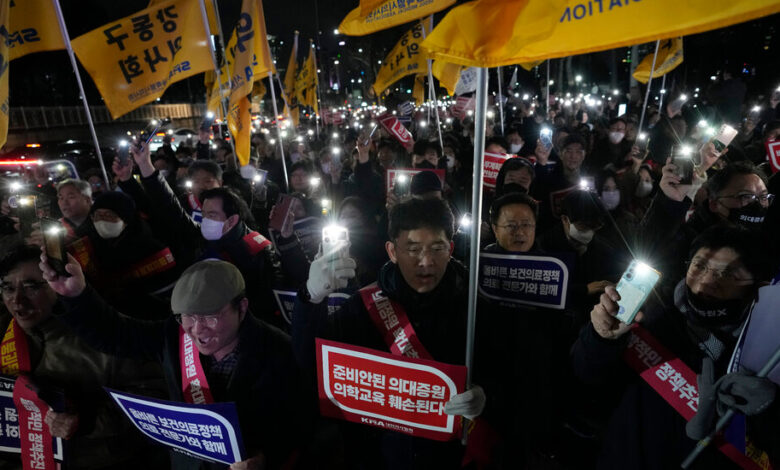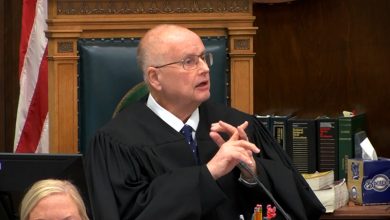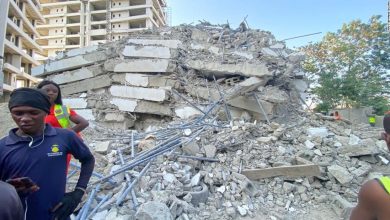Why South Korean Doctors Have Walked Off the Job

Hundreds of interns and residents in South Korea walked off the job on Tuesday, disrupting an essential service to protest the government’s plan to address a shortage of doctors by admitting more students to medical school.
While South Korea takes pride in its affordable health care system, it has among the fewest physicians per capita in the developed world. Its rapidly aging population underscores the acute need for more doctors, according to the government, especially in rural parts of the country and in areas like emergency medicine.
The protesters, who are doctors in training and crucial for keeping hospitals running, say the shortage of doctors is not industrywide but confined to particular specialties, like emergency care. They say the government is ignoring the issues that have made working in those areas unappealing: harsh working conditions and low wages for interns and residents.
Surveys have found that in a given week, doctors in training regularly work multiple shifts that last longer than 24 hours, and that many are on the job for more than 80 hours a week.
“The medical system has been collapsing for a while,” said Park Dan, the head of the Korean Intern Residents Association, who resigned from his job at the emergency wing of Severance Hospital in Seoul on Monday. “I couldn’t see a future for myself working in emergency for the next five or 10 years.”
The current setup of insurance and government payment systems, Mr. Park added, allows physicians only in a few departments, like cosmetic surgery, to make a decent living.
The protesting doctors also say that by increasing the number of physicians, the government risks creating more competition that could lead to the overtreatment of patients.
Early this month, President Yoon Suk Yeol’s administration announced a plan to raise the nation’s medical school admissions quota by 65 percent. Licenses to practice medicine are regulated by the Ministry of Health and Welfare. The plan was immediately criticized by doctors, who took to the streets with signs that read “end of health care.”
Trainee doctors at five of the biggest hospitals in Seoul, where most of the country’s people live, submitted resignations on Monday and left their posts at 6 a.m. on Tuesday. More than 6,000 doctors in training, over half of the nation’s young physicians, have resigned, but their employers have not accepted the resignations, a health ministry official said on Tuesday.
Medical centers were already reporting disruptions in operations on Monday afternoon, including Severance Hospital, one of the country’s largest, which said it had cut back on services and canceled half of all planned surgical procedures.
Officials have urged the doctors to stay in their posts, warning of legal repercussions for those who fail to comply. On Monday, the Health Ministry said it would suspend the licenses of two members of the Korean Medical Association who were among the most vocal critics of the government’s plan. The association, the country’s biggest group of doctors, declined to comment.
Laws permit the government to force some doctors back to work if they fear disruption of care. Officials have said that they will rely on telemedicine operators and even military doctors until the matter is resolved.
There is broad public support in South Korea for increasing the medical school quota, which has essentially been unchanged since 2006. The country has about 2.6 doctors per 1,000 people, compared with an average of 3.7 in the countries belonging to the Organization for Economic Cooperation and Development.
Mr. Yoon’s plan would raise medical school admissions to about 5,000 per year from 3,000. If the admissions quota is not increased, officials predict, by 2035 the nation will have about 10,000 fewer doctors than it needs.
This is not the first time in recent years that the government has pushed for more doctors. In 2020, President Moon Jae-in’s administration proposed increasing medical school admissions by 4,000 over 10 years. The plan was put on hold after a backlash from the medical community, centered on concerns similar to the current ones, and a monthlong strike by physicians.



